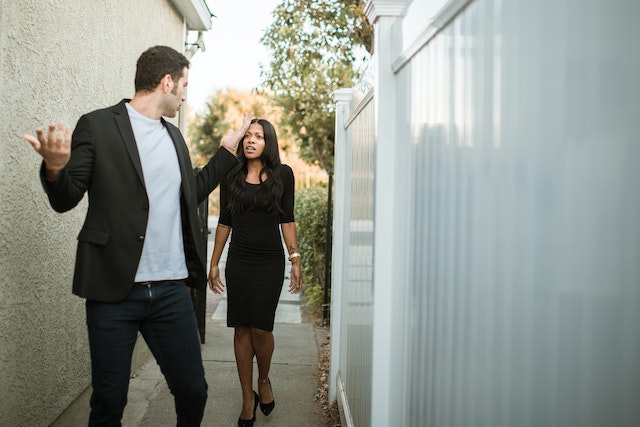Navigating the complexities of romantic attraction and interpersonal dynamics can be a rollercoaster of emotions. One of the most puzzling and emotionally challenging situations is when you believe someone is interested in you, only to find them seemingly ignoring you. In this article, we will explore the journey from initial attraction to the subsequent behavior of ignoring, shedding light on possible explanations and ways to navigate this perplexing situation.
Initial Signs of Attraction
When someone initially exhibits signs of attraction, it can be exhilarating and full of promise. These signs may include consistent communication, active engagement in conversations, compliments, shared interests, and a genuine desire to spend time together. Such behaviors often lead you to believe that there is mutual interest and potential for a deeper connection.
Possible Explanations for Ignoring
However, the transition from attraction to ignoring can be confusing and disheartening. Several factors may contribute to this change in behavior:
- Fear and Insecurity: One of the most common reasons someone who initially showed interest starts ignoring you is their own fear and insecurity. They might have developed strong feelings but are afraid of vulnerability, commitment, or getting hurt. As a result, they withdraw and distance themselves to protect their emotions.
- Mixed Signals: In some cases, mixed signals can lead to misunderstandings. The person may have exhibited attraction initially, but as they got to know you better, they may have realized that their feelings are not as deep or genuine as they initially thought. This realization can lead to confusion and, in some cases, avoidance.
- External Factors: Life is full of external factors that can influence a person’s behavior. Work stress, family issues, or personal challenges can consume someone’s attention and energy, causing them to temporarily withdraw from social interactions, including their romantic interest.
- Change in Priorities: People’s priorities can change over time. Someone who seemed interested initially may reassess their life goals, career, or personal aspirations and decide to focus on other aspects of their life, relegating their romantic pursuits to a lower priority.
- Mismatched Expectations: It is possible that both parties had different expectations about the relationship’s progression. While you may have envisioned a deeper connection or commitment, the other person may have been looking for something more casual. This mismatch in expectations can lead to confusion and withdrawal.
- Personal Issues: Individuals often carry personal issues and baggage that affect their ability to maintain healthy relationships. Past traumas, unresolved emotional wounds, or insecurities can surface as the relationship progresses, causing the person to distance themselves as a coping mechanism.
Navigating the Transition
When someone you thought liked you starts ignoring you, it can be emotionally challenging. Here are some strategies to navigate this transition:
- Open Communication: If you notice a change in their behavior, consider initiating an open and non-confrontational conversation. Ask if there are any concerns or issues that have led to the change in their behavior. Creating a safe space for discussion can help clarify their intentions.
- Self-Reflection: Take time for self-reflection to understand your own feelings and expectations. Consider whether your desires and goals align with the current state of the relationship. Understanding your own needs is essential for making informed decisions.
- Set Boundaries: If the person’s behavior is causing you emotional distress, it is essential to set boundaries. Determine what level of communication or interaction is acceptable to you, and communicate these boundaries clearly.
- Practice Patience: Recognize that people go through phases and may need time to process their emotions or address personal issues. While it is essential to assert your boundaries, it’s also important to practice patience and allow space for growth and change.
- Focus on Self-Care: Invest in self-care and self-love during times of uncertainty or emotional distress. Engage in activities that bring you joy, maintain a support system, and prioritize your well-being.
- Consider Seeking Closure: If the situation remains unresolved and causes ongoing distress, you may need to consider seeking closure. This may involve a direct conversation with the person or simply accepting that the relationship has run its course.
Conclusion
Navigating the transition from initial attraction to someone seemingly ignoring you can be emotionally challenging and perplexing. It is crucial to recognize that relationships are complex and dynamic, and people’s feelings and behaviors can evolve over time. While the reasons for ignoring may vary, open communication, self-reflection, setting boundaries, practicing patience, focusing on self-care, and seeking closure when necessary are all valuable strategies for navigating this emotional terrain.
Ultimately, the most important aspect is your own well-being and emotional health. By understanding your own needs and boundaries and approaching the situation with empathy and self-compassion, you can navigate this challenging transition with grace and resilience, regardless of the outcome.

